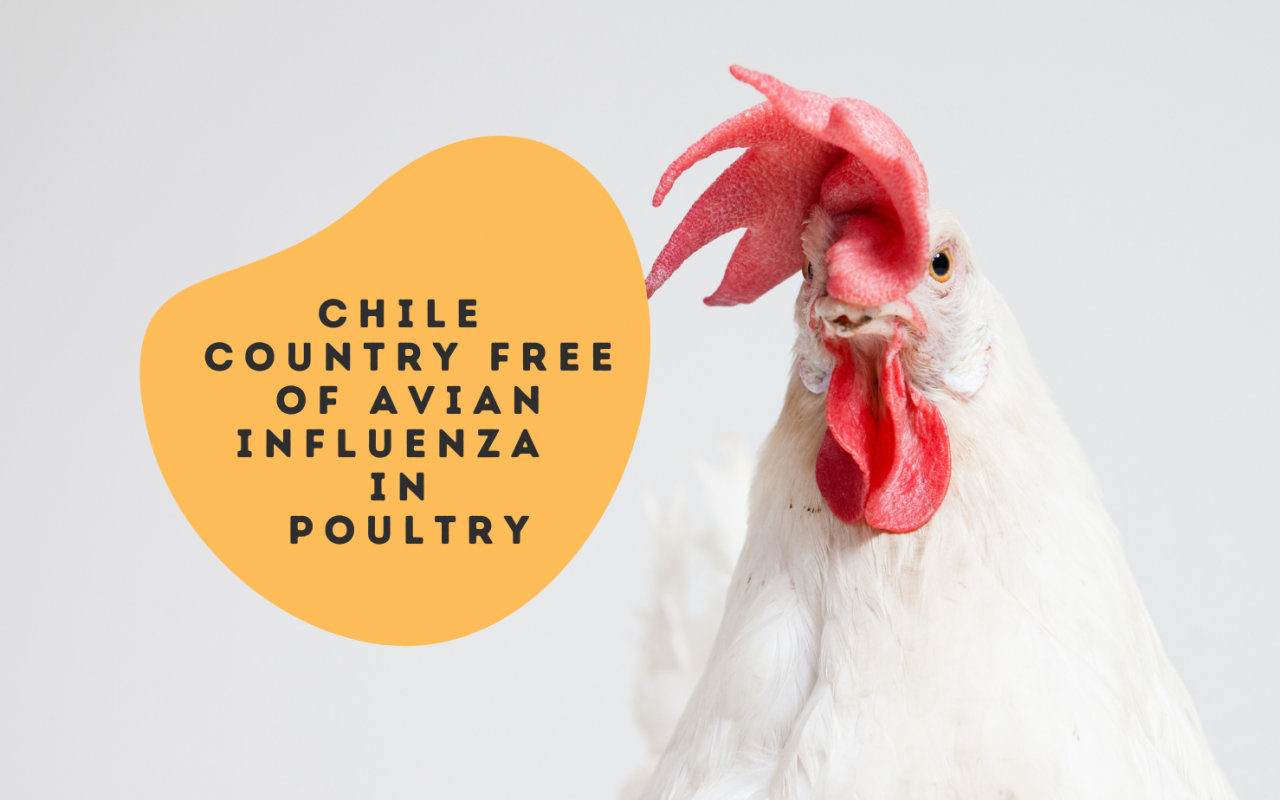
Chile declared free of Avian influenza in poultry
The country’s Minister of Agriculture reported the declaration as of August 22. The decision came after SAG followed the actions, surveillance measures, and timelines set by the World Organization for Animal Health (WOAH), shutting down all commercial farms that tested positive for the disease. Chile has confirmed its free of Avian influenza (AI) status after […]

The country’s Minister of Agriculture reported the declaration as of August 22. The decision came after SAG followed the actions, surveillance measures, and timelines set by the World Organization for Animal Health (WOAH), shutting down all commercial farms that tested positive for the disease.
Chile has confirmed its free of Avian influenza (AI) status after not reporting any new outbreaks in commercial farms since June 4. The Minister of Agriculture, Esteban Valenzuela stated that “this is great news (…), especially for the O’Higgins Region, one of the key areas for chicken exports, job creation, and the industry’s slaughter plants reactivation. We have one less problem and that is very important.”
The announcement will allow exports to resume to markets that require the “free-of” country status and are key to Chile’s industry, such as China, Canada, Peru, Colombia, and Costa Rica.
The head of the Agricultural and Livestock Service (SAG), José Guajardo, highlighted the work carried out by the service: “thanks to the coordination of our officials throughout the country and the collaboration of the industry, today we can say that we are free of this deadly virus in poultry. However, it doesn’t mean that we let our guard down. SAG continues its hard work and deployment throughout the country to prevent new outbreaks. We have strengthened the industry’s biosecurity measures, working closely with it, and we believe this will help us face the next bird migration season, in the spring, on a better footing.”
Since the start of the animal health emergency in December of last year, SAG has sampled around 25,000 industrial birds and 96,000 backyard animals. “This declaration help us continue to reopen poultry markets such as China, Colombia, South Korea, and Peru, among other destinations,” concluded SAG’s director.
From the industry, the president of ChileCarne, Juan Carlos Domínguez, the association that represents the ChilePork brand under which Chilean pork is promoted in various countries, stated that “the growth that the chicken and turkey industry has seen in the last 20 years is mainly explained by the possibility of exporting to the most demanding markets in the world. Chile being able to recover its AI-free status only five months after the first outbreak confirms the good public-private work carried out to safeguard our country’s health status. I can only celebrate the work carried out by SAG throughout Chile and underscore the need of strengthening all biosecurity measures at the farms to prevent the entry of this disease.”
Since 2015, ChileCarne has led key preventive measures. One is the Wetlands Biosecurity Program aimed at small producers, which covers seven wetlands from the northern region of Arica and Parinacota to Valparaíso. The program has invested over 1.2 billion CLP (about 1.4 million USD), benefiting 167 small producers and none of them registered Avian influenza cases during this period. A poultry farming insurance, also created in 2015, received a more than 750 million CLP (around 877,000 USD) investment, offering coverage to poultry farmers with up to 1,000 birds. So far in 2023, the insurance has provided coverage to 174 backyard producers for 156 million CLP (roughly 182,000 USD).
ChileCarne and SAG are currently negotiating a zoning protocol that would allow exports from disease-free areas to continue. Talking about numbers, the impact of AI on exports meant that 28,000 tons of poultry were not exported between March and June of 2023, which represents an approximate loss of 153 million USD.
